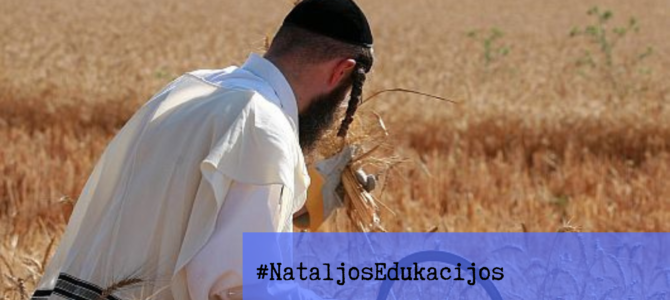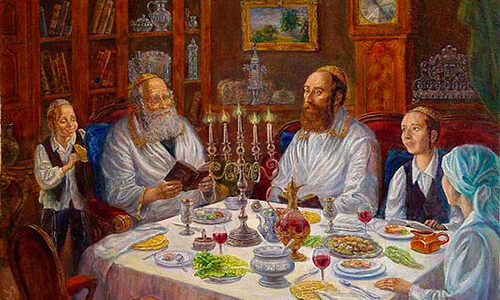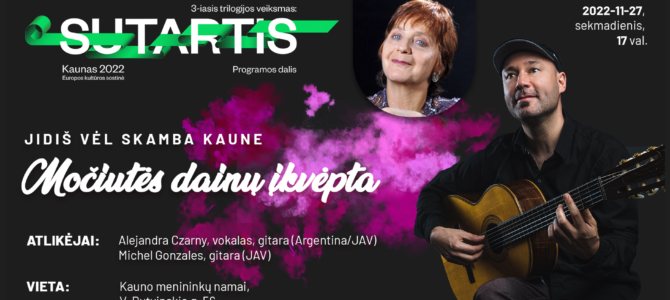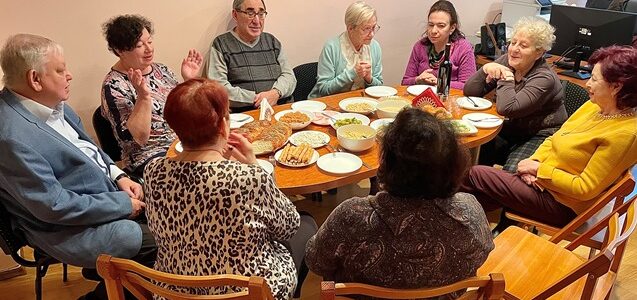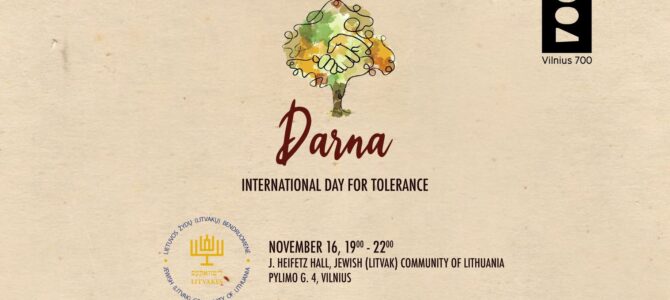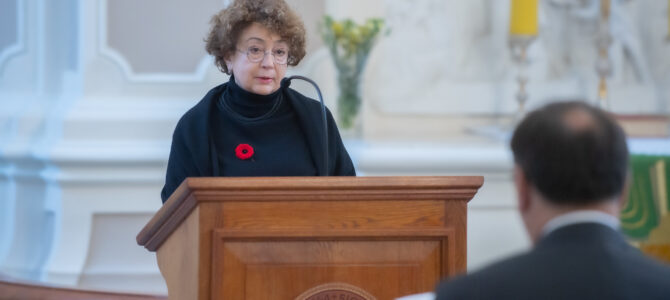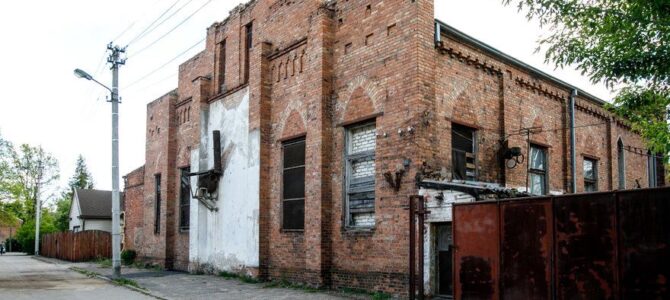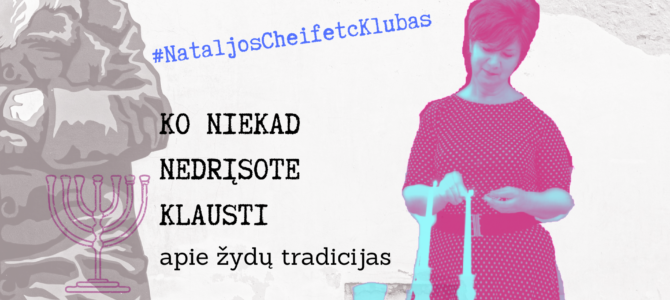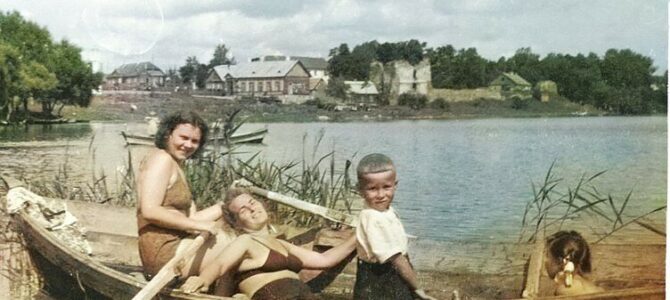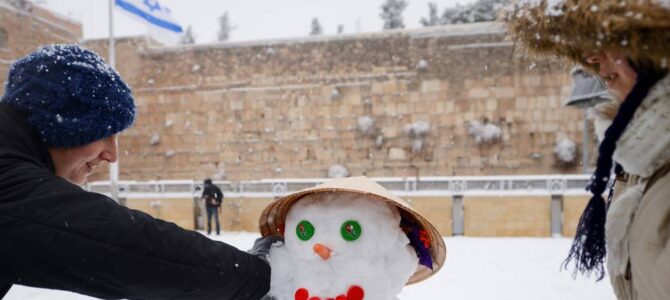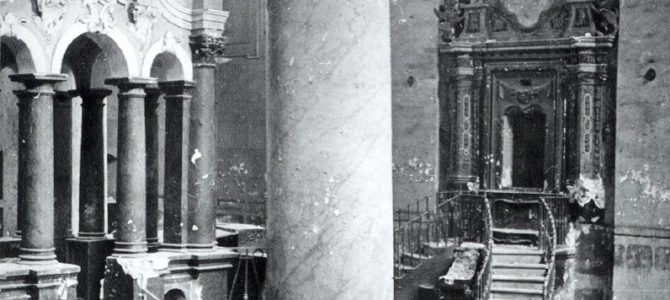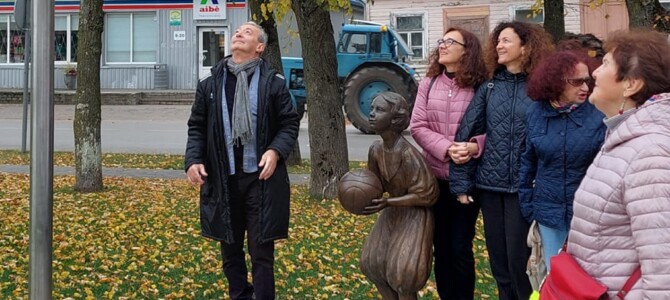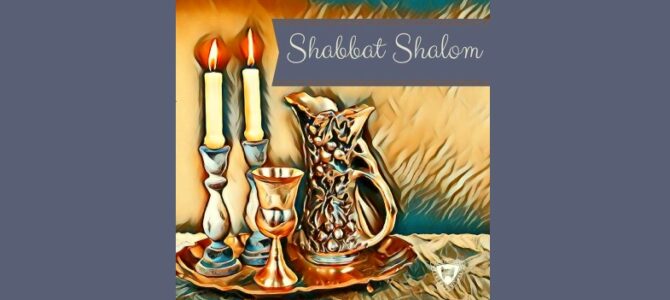Photo: Trakai in 1952. From the personal collection of Algimantas Dočkus courtesy LRT.
by Rasa Kalinauskaitė
“Sir, I report that while inventorying the Jewish property taken to the synagogue I discovered seven fur coats suitable for police service. Three of them are of a yellow and unlined falling to below the knees, four are lined with cloth material, coming down to the knees. I request an order these fur coats be seized for police officers to wear as they perform their duties.”–from report by chief of Trakai police department to chief of district police, October 17, 1941.
I and a contingent of Trakai residents as well as two people who came from further off went on a tour of the Trakai Old Town, visiting sites recalling the Jews who lived here before World War II, stopping at former Jewish homes which are still standing. We became fellow travellers, in that those who toured Trakai in earlier times have shared their memories from many decades ago in the photographs they took, which show a town which has now completely changed. I wanted to share this with those who were not able to come, so I will attempt to describe this trip.
This is a journey through memory, because that same day, September 30, was the day in 1941 when the Jews of Trakai, Aukštadvaris, Lentvaris, Rūdiškės, Onuškis and Žydkaimis, 1,446 people of whom 597 were children, were murdered in Varnikai Forest.
Full article in Lithuanian here.
